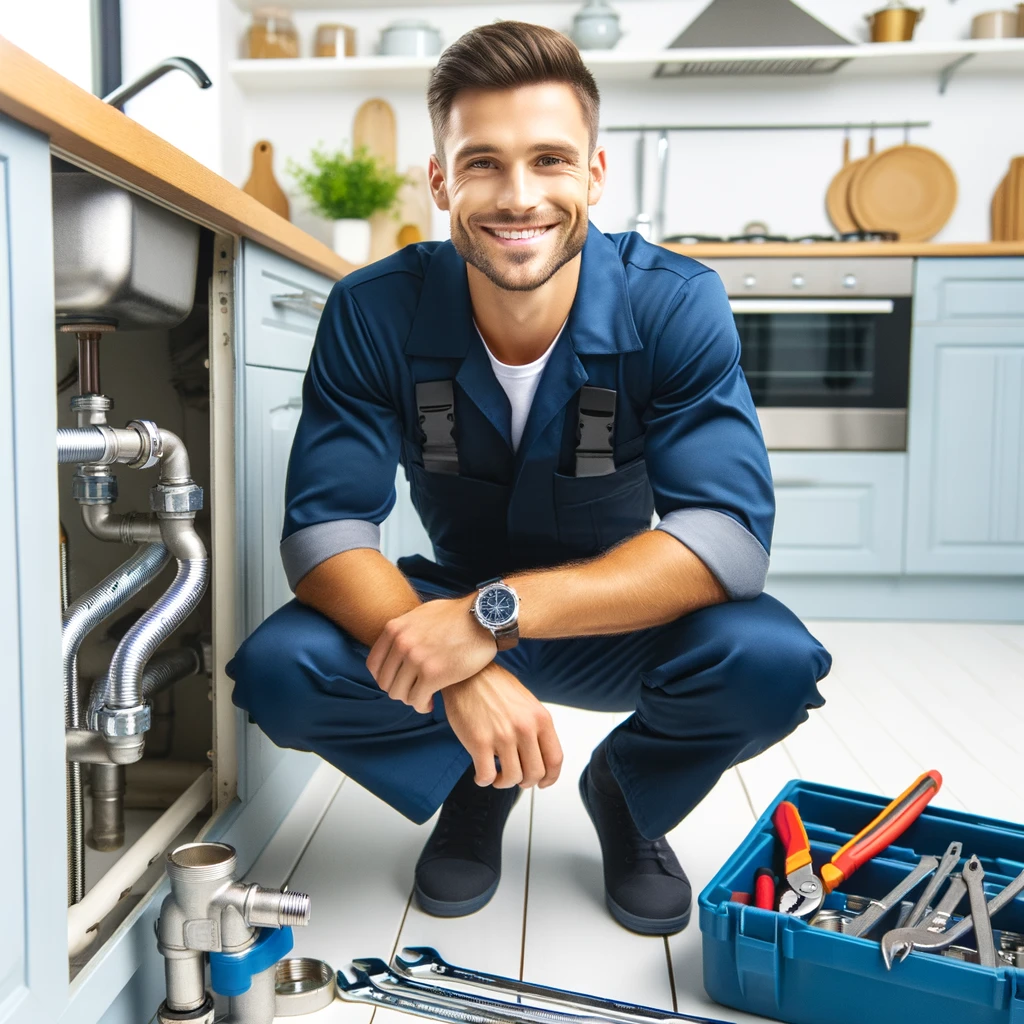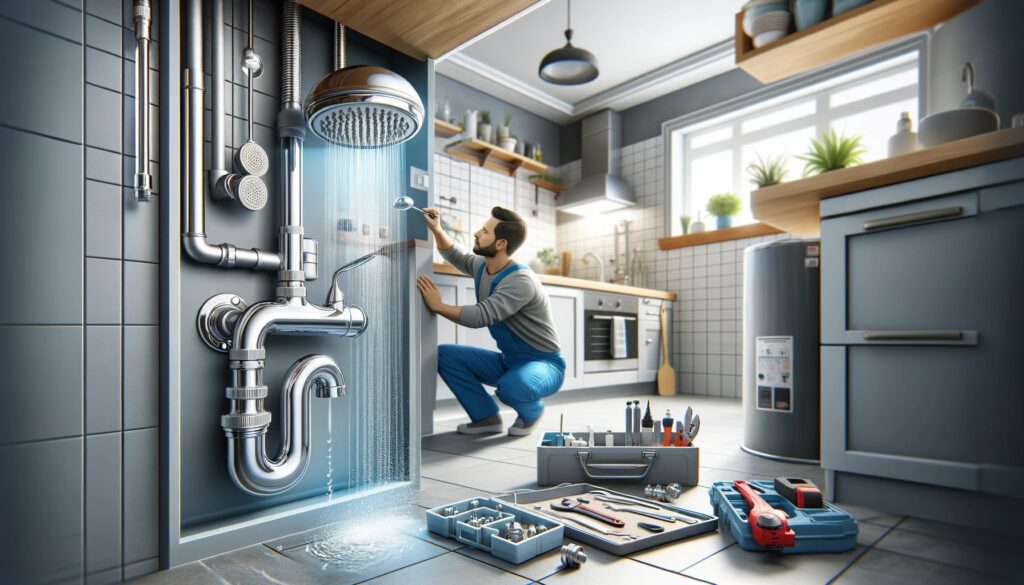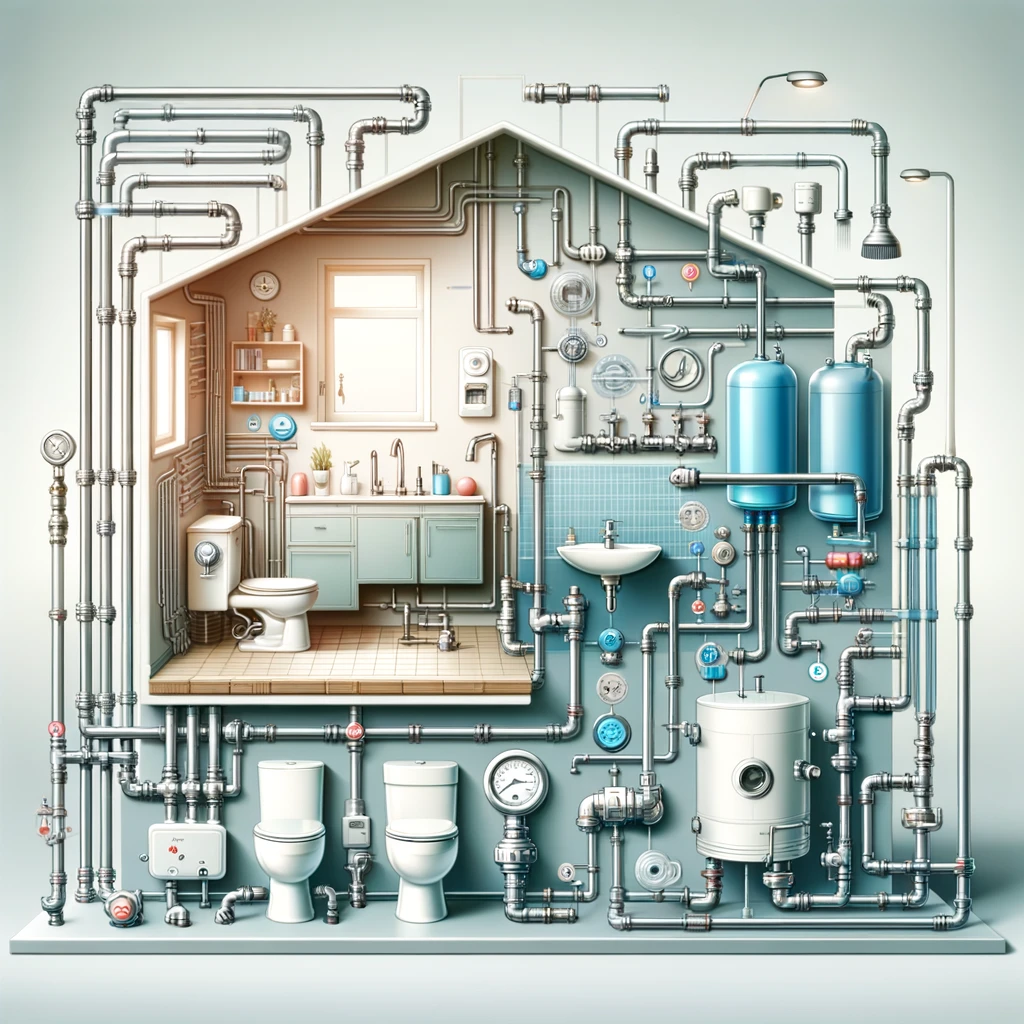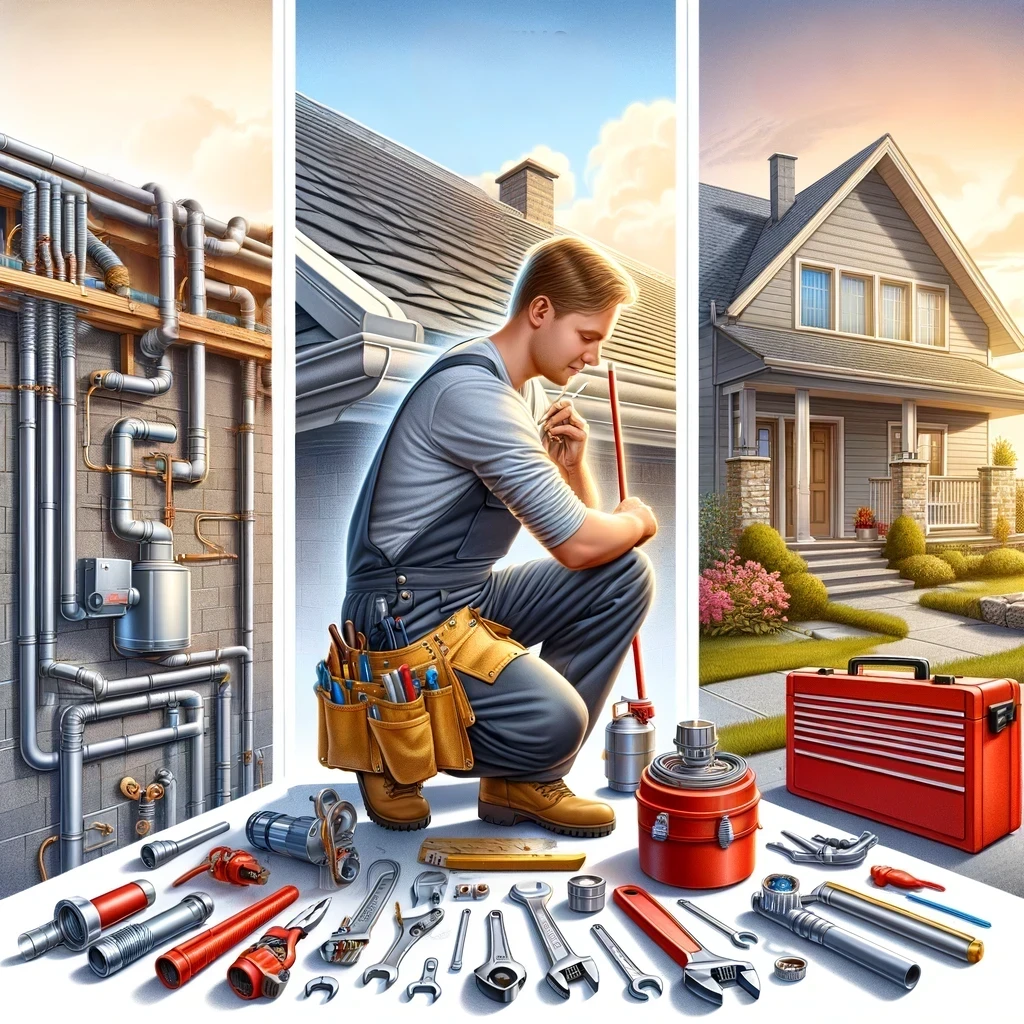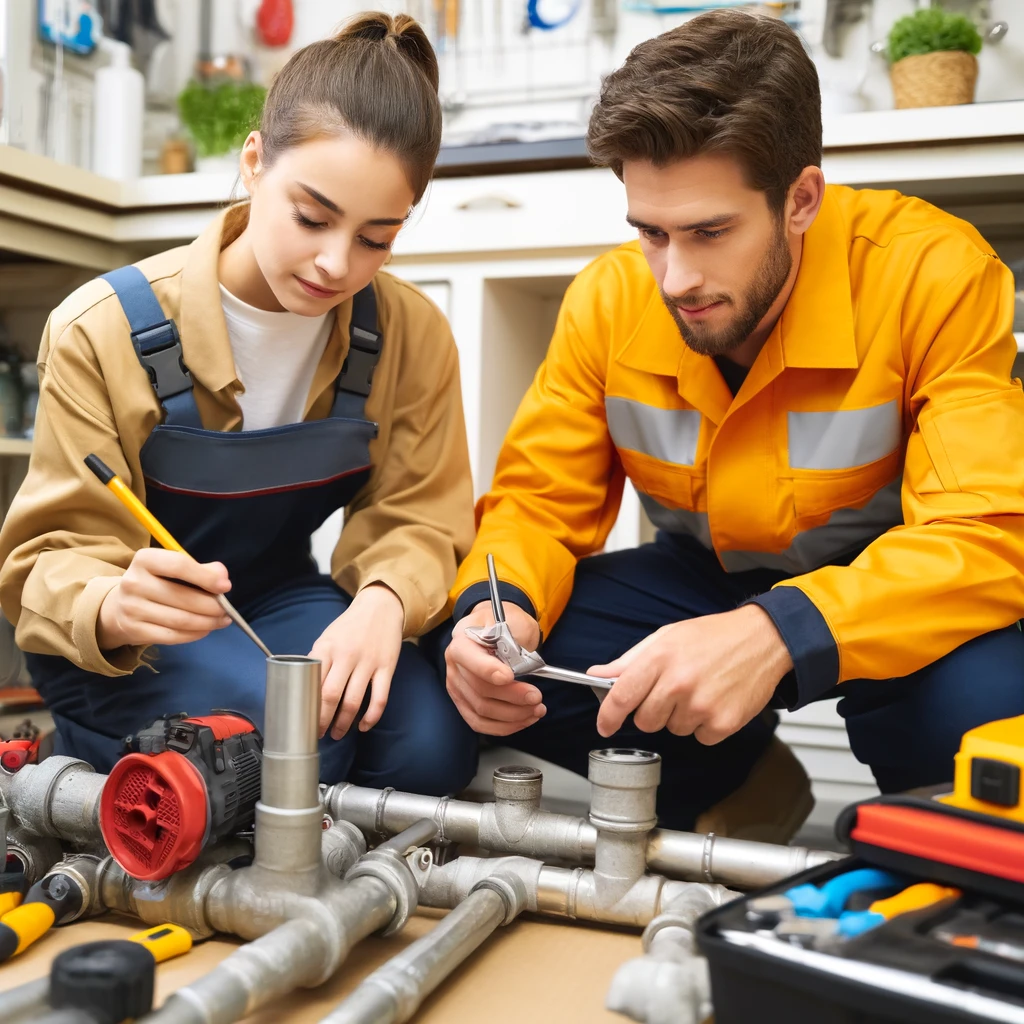What does a Plumber Do: Significance Of Plumbing in Our Life
“You wake up in the morning and turn on the tap there is no water. And imagine trying to make dinner with no sink or dishwasher that work either. Even the most ordinary of annoyances — a leaky tap, blocked drains or overflowing toilet — cast illumination on the essential yet often underappreciated world of plumbing.
Plumbing systems work behind the scenes every day of our lives, from morning to night providing clean water and taking away waste and makes it possible for us to live easily.
Plumbing: The Backbone of Modern Living
Though we forgot for certain times, plumbing is actually a very necessary element to our current means of life. It is an intricate system (collective of pipes, fixtures and appliances) which delivers potable water to a building ensuring the removal of both wastewater and presence of facilities for cooking, washing and living such as like cooking, cleaning & bathing ).
Consider the plumbing in your home as a circulatory system able to deliver water and waste throughout the house. It is the silent guardian watching over our seamless living spaces, tending to it and protecting our very well-being.
Past to Present Pipeline History
Civilizations from thousands of years ago used advanced systems to dispose of water and waste long before we came up with the idea. Cities of the Roman empire, a utopia known for their vast network of aqueducts and sewers that kept the multitude of busy city streets clean.
Plumbing technology has come a long way over the centuries, from lead pipes and wooden drains to those made of more modern materials such as copper, PVC or PEX.
The 18th-century invention of the toilet transformed sanitation practices; whereas, the traditional bathtub baths was a preceptive and uninterrupted ritual social activity based upon satisfying the physical need to feel clean.
How Plumbers Became the Defenders of Our Health & Wellbeing
Without them, the health and safety (not to mention dignity) of civilization hangs in the balance: … Plumbers are the unsung heroes of modern society — those brave professionals who come to our rescue every time we flush a toilet. They are the people we count on to install and maintain and repair the critical plumbing fixtures, lines and ducts that are necessary for our lives.
Here are plumbers play a key role in:
- Smart Plant and Spacing Layout: Plumbers design and maintain water supply lines, making sure good clean water reaches homes, offices it also services even open space like public gardens.
- Prevention of Wastewater Backups and Health Hazards: They help in preventing wastewater backups, outbreaks of diseases etc. through installing new sewage systems or repairing any existing ones.
- Plumbing Systems: Plumbers diagnose and fix problems with our sinks, toilets, showers — basically any plumbing fixtures to keep them running.
- Expert Advice: Plumbers may give advice on how to reduce water consumption, conserve water and choose the right plumbing fixtures and home equipment.
In the trilogy of articles we have published over these weeks there is one constant…that being plumbing services are a necessity no matter what kind of building structure you represent.
Home Use Plumbing: Keeping Homes Running Smooth
Home plumbers are the first call for homeowners when a plumbing issue arises. By offering tons of services, no home, apartment or condo has to go without the plumbing system working smoothly.
The most common residential plumbing services include:
- Water Supply Installation and Repair: Now you must be thinking, what is it that these residential plumbers do apart from providing us services in water supply installation and repair? This pertains to repair of leaks, replacement of pipes and fitting in new range in taps and showerheads sometimes even water heater.
- Install and Repair Drainage Systems: A plumber is responsible for installing and repairing systems that remove wastewater from your home. This means fixing clogged drains, patching leaky pipes and installing new drainage amenities such sinks, toilets or showers.
- Installation and repair of hot water systems: A keep your home plumbers are one phone call away to help you maintain a reliable source of hot water. These include gas, electric and solar-powered systems in addition to their installation, upkeep and repair.
- Bathroom and Kitchen: Peace Of Mind regarding bathroom and Kitchen Plumbing Renovations Filling up in a Residential plumber for assistance They take care of the duty to execute jobs such as installing a new system, moving pipes or hooking appliances in place like dishwashers and washing machines.
- Leak Detection and Repair: Plumbers are well-equipped to handle leaks in pipes, fixtures, or appliances. Its important to do this so that you can avoid expensive repairs in the event of a leak from the pressurized water system.
For detailed information about the residential plumbing system, don’t miss our Understanding Plumbing System: Master Your Home Plumbing
Commercial Plumbing: Ensuring Businesses Run Efficiently
Commercial plumbing differs from residential to address the commercial building structures need larger and more complicated systems that will work together to get the water flowing again this requires specialised knowledge and experience in a range of tasks. Commercial plumbers do this kind of job because they work with all kinds of supplies and layouts across retail stores, schools, hospitals, eateries and warehouses.
Commercial plumbing services include, but are not limited to the following:
- Commercial plumbers design and put into place large-scale piping systems for water supply and disposal, which ensure an uninterrupted flow of clean water and safe waste removal from security-sensitive areas. These workers also service and maintain these systems, as well as complying with all building codes and regulations.
- Boiler Systems Installation and Maintenance – As many commercial buildings are operating on boiler systems for heating as well as the hot water supply. Commercial plumbing services involve the systems in businesses, which are usually different from residential systems. Commercial plumbers maintain, install and repair these unique pieces of equipment to keep them working consistently.
- Fire Sprinkler Systems Installation and Maintenance: These systems are essential for safety, and it is commercial plumbers who mostly install and maintain fire sprinklers. These systems are critical for safeguarding lives and the premises when a fire number is obtained.
- Commercial kitchens generate a large volume of grease waste. Grease Trap Cleaning and Maintenance Grease traps prevent clogs and keep waste flowing downward where it belongs, so commercial plumbers clean them to make sure that happens.
- Installation and Servicing of Water Treatment Systems: The quality of water used in a great many applications, from the water you drink to process industrials, can be enhanced by professional plumbers.
- Backflow Prevention: Commercial plumbers keep the public water supply safe by preventing contaminated water from flowing back into the municipal system, installing and maintaining backflow preventers.
Learn More About Plumbing Services That Are Specialized For Specific Needs
In addition to residential and commercial plumbing, there are a number of special types of plumbing.
These include:
- Gas Fitting: Gas fitters install and service gas lines for appliances like stoves, water heaters, or fireplaces. They are also tasked with ensuring that gas installations are safe and meet the necessary criteria.
- Roof Plumbing: Roof plumbers deal with those aspects of the trade concerned with services on or below the roof, especially related to gutters and downpipes, but also other matters which penetrate the roof {including skylights (noise only)}.
- Industrial Plumbing: industrial plumbing deals with larger scale systems in the commercial area, this contains large scale jobs such as sewage systems, gasoline and production plants. They put in and maintain fussy piping systems for alternative processes and direct different resources like hazardous chemicals or high-pressure waters.
- Drilling and Keeping Up with Water Wells There are a lot of water well drilling companies out there, ready to meet your needs.
- On Site Sewage Treatment Systems Installation and Maintenance: On site sewage treatment systems are important for the proper disposal of wastewater in areas lacking municipal sewer service. Accredited plumbers also fit and service these systems to ensure that water is disposed of in the most efficient way possible.
The Life of A Plumber; Challenges and Triumphs
Being a plumber makes this normal day even crazier than it is. The profession is dynamic and requires a specific skill fluidity; the ability to problem solve and adapt equally as well. Plumbers work everywhere, throw the worst things into their depths and enjoy helping people.
Work Environment — Houses To Factories
Unlike people working in other career fields, plumbers are not tied to a cubicalleted on a single location. They move between contexts, and are responsive to the constraints put upon them.
What an are the daily task routine of a plumber
- Homes: You might work residential homes, fixing problems such as leaks & new fixtures The trouble is that they are working on so many different plumbing systems and each house can present new challenges- Varying layouts.
- In commercial buildings: Plumbers have more extensive projects in commercial buildings, including the installation and repair of complex piping systems such as boilers, fire sprinklers. Chances are, if you need a plumber and other professionals, that means that these staff work together on complex construction.
- Industrial Plants: Plumbers work at industrial plants where they are tasked with the responsibility of working on unique plumbing systems specially designed for different processes. This could mean they must handle hazardous materials, high-pressure fluids, and personnel in uncomfortable surroundings.
- New Construction Site: In new construction projects, plumbing workers play a significant role in starting with laying down the pipe up to set-up of entire plumbing system. They work with builders and architects to plan plumbing in new construction, ensuring compliance with building codes.
Strength, Dexterity and Endurance
It is a demanding career in terms of a lot of manual labor. Tasks that plumbers frequently undertake include;
Lifting and Carrying Heavy Equipment Plumbers use pipe fittings, tools, and other supplies can be quite heavy. They must also have strength and endurance to handle these matters, lifting the pieces and carrying them around effortlessly.
- Working in Tight Spaces: Working under sinks, in crawl space, and sometimes working the attic. It requires them to be quick and adept in working with small spaces.
- Dealing with Hazardous Materials: In the course of their work, plumbers can come in contact with hazardous materials such as various chemicals, sewage and asbestos. Safety protocols must be observed and right protective gear should use.
- Prolonged Standing: Plumbing is a profession that requires working a lot on your feet. Workers in these occupations must be physically able to perform the work.
Problem-Solving and Technical Skills: Diagnosing and Resolving Issues
Apart from a strong penchant for physical labor, plumbers need to have an exceptional eye for plumbing systems and could discern the root of any intricate issue. This often leaves them in situations that need to:
- Diagnosing: Plumbers rely on their training and experience to pinpoint the root cause of plumbing issues. This can entail assessing pipes, fixtures, and appliances; evaluating water pressure; identifying drainage patterns.
- Technical Knowledge: As one would guess, plumbers must know all their plumbing materials and proper uses at the tips of their fingers. They are required to have knowledge on how various systems work and therefore the suitable solutions which might be accustomed with regards to plumbing problems.
- Flexibility: plumbers can predmomu run into unexpected problems. They must think beyond the box, change their strategies and make on the spot decisions for challenging situations.
Communicating with clients, customer service and building trust
A plumber is not just a technician, but he or she has to be equally a communicator and problem solver for their clients. They require it as they to have Good Inter-Personal Skills To:
- Clear Communication with Customers: Effective plumbers can explain difficult plumbing issues in an easy-to-comprehend manner for their clientele. The goal here is to create trust that the client knows what is happening and part of coming up with a fix.
- Provide Solutions In A Professional Manner: Before starting any work, a plumber must heed to the issue and offer practical solutions that will solve it immediately. They must be able to explain the different methods, take into account budget and clientele needs, and advise them of what course of action would make sense.
- Plumbers Are Relationship Driven: It is not uncommon for plumbers to forge long-term relationships with their customers. It means establishing a strong trust factor by making sure you are consistently professional, dependable and providing top-notch customer service.
For detailed information about working with plumbers, don’t miss our Communicating with Plumbers Effectively 2024: A Homeowner’s Guide to Successful Collaboration
The Rewards of a Plumbing Career:
Well, you have got a lot to face up with when it comes to plumbing, but may the career is well rewarding one.
- Plumbers Make a Difference: Many of Great Plumbers directly contribute to the health, safety and well-being of our communities. They perform vital functions that help maintain our quality of life—securing access to clean water and removing waste safely, for example.
- Hands-On Work: If you prefer to work with your hands, then plumbing can offer a rewarding career opportunity. Many practical jobs involve work related to specific skills or expertise, such as plumbing.
- A Decent Income: Plumbing is a trade in which the money can be good Plumbers Cn Actually Build Successful Careers, And Good Money!
How To Be A Plumber: Education, Pay, and Courses
If you have thought about pursuing a career in plumbing, there are many steps to become educated and trained for the skills needed to be proficient in this lucrative profession. Becoming a licensed plumber is similar to any other trade. This usually involves some combination of supervised practical experience and classroom instruction; an enlarged period of training for almost every country includes four extra years, typically spent passing more directional examination (testing should only be given periodically) requirements.
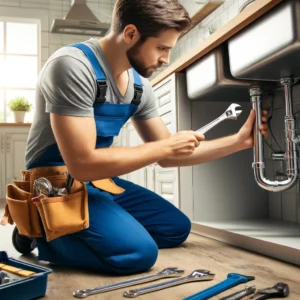
Internship Programs : Practical And Theoretical Knowledge
The basis of this training is the practice of apprenticeships. They offer structured setups where trainee plumbers can work alongside experienced professionals to pick up the trade.
The key features of apprenticeship programs include:
- pprenticeship: Apprentices learn on the job, working with master plumbers and encountering various plumbing tasks. They learn how to install piping, repair fixtures and maintain systems through a hands-on training program.
- Classroom Instruction: Apprentices are also given some classroom instruction that would include plumbing overview, building code and safe work practices among other details. Knowledge of plumbing theory will support this hands on experience, complementing the training plumber’s (5 or 0 years) practical development.
- Mentorship:Skilled plumbers that can be mentors, offering on-the-job training and industry insights to apprentices.
Vocational and Trade Schools: Professional Plumbing Certification
There are formal training opportunities available through trade schools and technical colleges, many of which will teach you theory as well as skill in plumbing.
Common examples of these programs include:
- Theory of Plumbing: Students study pipe design, legal regulations and system operation as well as typical plumbing problems.
- Handy Work: The students learn the hands on doing of the plumbing tools, fixtures & material. They learn the installation of pipes, repair of fixtures and troubleshooting techniques on systems.
- Certification Exams : Students can take this course and on successful completion of programs they are trained for the certification exams. Clearing these exams show that you are proficient in the skills and knowledge of plumbing which increases your job opportunities.
Licensing: Competence and Public Protection
Licensing means that plumbers have to meet particular standards of competence and professionalism. State licensing requirements — It varies state by state, but must include:
- How To Be A Pipefitter/Apprenticeship: Prospective applicants expecting to be trained in pipe fitting must have successfully completed an accredited plumbing program.
- Following Experience: Many require applicants to work a number of years as an apprentice under the supervision of a licensed plumber.
- Licensing Exams: Applicants are required to take both written and practical exams that evaluate their comprehension of plumbing codes, safety regulations, and technical abilities.
Continuing Education: Staying Updated on Industry Standards and New Technologies
The task of plumbersHave grown considerably over the years, and some people feel like plumbing is nearly a science due to how rapidly new technologies are introduced into the industry regularly. Ongoing education is fundamental for a plumber to keep up with the times and allow them to remain competitive.
Plumbers can stay current by:
- Industry training: industry associations and trade schools provide workshops about new plumbing technologies, code updates, or best practices.
- Trade Publications: One way to stay on top of the latest industry news, advancements, trends and technical insight in a given field is through trade journals or online resources.
- Networking With Other Plumbers: Profession organizations and networking type events help keep you up to speed on best practices trends, etc in the industry by information sharing with other Plumber’s.
Steps to Becoming a Master Plumber and Beyond
Plumbing as a career growth prospects Typical Career Path here;
Apprentice Plumber: An aspirant is similar to an apprentice and start with training under a professional licensed plumber.
- Experienced plumber: Completes an apprenticeship, obtains a license to work independently or with the plumbing company.
- Master Plumber: The holder of a master plumber license, achieved through more education and experience as well as an exam A master plumber qualifies one to work as an official in the position, and in many states may be Master Plumbers Can practice technology, manage other plumbers, specialize elsewhere within plumbing.
- Specialist Plumber While basic plumbers may undertake any of the functions in the plumbing profession, other practices are scheduled to focus on one or more places. These guys become experts in this domain and offer their services accordingly to the customers.
For people that like to solve problems with their hands, a career in plumbing offers a path that is diverse and rewarding — creating an real-world product alongside benefiting the safety of their communities.
How to hire a plumber: Expert advice to choose the right person
No one really likes to hire a plumber, but of course,the day will eventually come when your plumbing system needs attention and you do. A good plumber can quickly diagnose the issue, provide a fast solution and have their work done efficiently. Here are a few important tips which may help you to manage the process of hiring plumber and take as many decisions below;
Requesting Referrals: Harness The Power Of Endorsement
Many of us find getting a good plumber the best source through word-of-mouth recommendations.
- Get Recommendations: Talk to friends, family members and neighbors who have had plumbing work done in the past. You should also ask them about their experiences with other plumbers or plumbing companies, how satisfied they were and whether they would hire the plumber again.
- Consult Local Businesses and Contractors: In case you are undertaking home renovations or have office plumbing requirements, ask builders or other professionals for suggestions.
- Checking in on Reviews: Searching Reviews and Reputation of the Company
Licensing & Insurance: How This Benefits You Legally And Economically
This is important as if anything were to go wrong you want the plumber to have correct and valid indemnity.
- Professional Licensing: Ensure (by contacting the appropriate local licensing board, or authority) that your selected plumber is licensed. A valid license is evidence that the plumber has met all the required training and experience standards.
- Insurance: Inquire with the plumber about their insurance such as general liability and workers’ compensation insurance. Being covered in the case of accidents or damages during work.
Written Estimates: Costs and Scope Of Work
For hiring a plumber, the other basic precaution is to ask for an upfront written estimate with all details of work, materials needed and expenditure in cost or hourly charges, plus mode of payment.
- Breakdown: Always ask to see a breakdown of the cost per skill, materials and labour. This will give you a good idea about the total costs for your project and allows you to compare different bid offers from various plumbers.
- Transparent Communication: The estimate should be written in a manner that it clearly defines the scope of work which is being estimated. With this we avoid the misunderstandings, and arguments of later.
- Questioning: Resolving Doubts and Deciding with Sound Judgement
You should not shy away punch ebrewer with some serious inquiry so that you can clear your doubt and make an informed decision.
Experience: Ask the plumber how many years he has been in business and if he is familiar with your type of plumbing issue.
Materials: Ask about the type of materials the plumber will use and check whether or not these are up to industry standards.
Guarantee: Ask about warranties you can pass on to your customers for both the work and materials.
References: You ask for 3 references from people who have had work done by the plumber, so you can get a feel for how satisfied those customers are with what that company has performed in the past.
By hiring a professional plumber, the work gets done properly and you protect your home, your budget and save yourself from sleepless nights.
KEEP READING: Trending Future of Plumbing Concepts, Demand and Mindful Practices
The plumbing business is constantly progressing, integrating new technologies and adjusting to changing expectations, while attempting to maintain the moral high ground. The idea of the future of plumbing can be pretty interesting as well, and this graphic offers a peek into what’s to come in plumbing:
Trends and Techniques – Impact of Innovative Technologies on Plumbing Practices
Plumbing technology is quickly evolving, and today’s advancements are changing how the plumbing industry works through more advanced systems and solutions that help save water while improving efficiency for homeowners.
- Smart Plumbing Fixtures: Trend spotting shows smart faucets, toilets and showers are growing in popularity with features that allow automatic temperature control, water saving modes and voice activated functionality.
- Here are 5 water conservation technologies plumbers are using to conserve water Low flow fixtures Water-efficient appliances Rainwater harvesting Plumbing maintenance Management of infrastructure Conclusively, there is no doubt that the help of plumbing specialists is invaluable for homeowners and businesses in saving their water bills.
- Environmentally Friendly Plumbing: Reusing materials, energy-efficiency in plumbing systems and water waste disposal are used more often to help maintain sustainability within the environment.
- Pipe network health check and fault detection: Sensor technology now allows plumbers to conduct remote plumbing diagnostics by studying data collected in the cloud from sensors that are installed within pipe networks. This means faster diagnosis and repairs.
The Growing Demand for Skilled Plumbers: A Thriving Industry
Demand for trained plumbers is expected to rise well into the future.
Aging Infrastructure — As our infrastructure gets older and/or obsolete, the need for repairs or replacements will lead to new demand for plumbers.
- Population Growth: A growing population means an increasing demand for plumbing, with new homes and businesses requiring services.
- New construction: New construction will drive demand for plumbers to install new plumbing systems.
- Innovation and advances of technology: as new materials and devices are created for plumbing, or efficiently using water in the event of scarcity — so too will employment opportunities arise where a specialized knowledge base is welcome by related industries.
Why Ethical Practices like Trust and Reputation are Critical
Ensuring that all work is done in an ethical fashion is important for fostering trust and mitigates a good reputation as part of how plumbing business owners must operate their businesses.
- Honesty and Transparency: Plumbers can inform you upfront about, prices to the scope of work and any risks or potential challenges.
- Customer service and clear Communication: This translates into a few things; showing up on time, cleaning up after the job to make sure your home isn’t just left as it was when they got there (i.e. dirty), being professional in every interaction with customers, while explaining what is happening clearly throughout their process.
- Compliance: The best plumbers adhere to building codes, safety standards and regulations set at the local level.
- Persevering with Training: Plumbers ought to take part in persevering with coaching so as to have the ability maintain current on the most recent plumbing modifications, and perceive how enhancements inside expertise influences one of many world?s oldest occupations.
The reality is, the future for plumbing gives us plenty of room to innovate, grow our businesses and make a difference in more lives. Plumbing is at a crucial point where new technologies and the ethics in which we practice may soon determine whether our trades future will be defined by an aging work force, or provide safe health effective homes for our communities.
Frequently Asked Questions About Plumbers
What does a plumber do?
Plumbers work to install, maintain and repair all plumbing in homes, businesses and industrial settings. The scope of their job is varied, and some tasks include: installing and repairing water supply lines, waste disposal systems, hot water heaters and fixtures; unclogging drains; detecting leaks that need fixing; discussing plumbing renovations.
How do I become a plumber?
Plumbers are usually trained through a combination of formal schooling and hands-on apprenticeships, as well as licensing exams. Becoming a PlumberThe first step to become a qualified plumber includes training, apprenticeship and passing state-administered licensing exams.
Advice on Hiring a Plumber
When selecting a plumber, you must ensure they are properly licensed and insured, obtain detailed written estimates before work commences, request references or read client reviews online. Make sure to ask them regarding the experience, materials they used, warranties, references.
